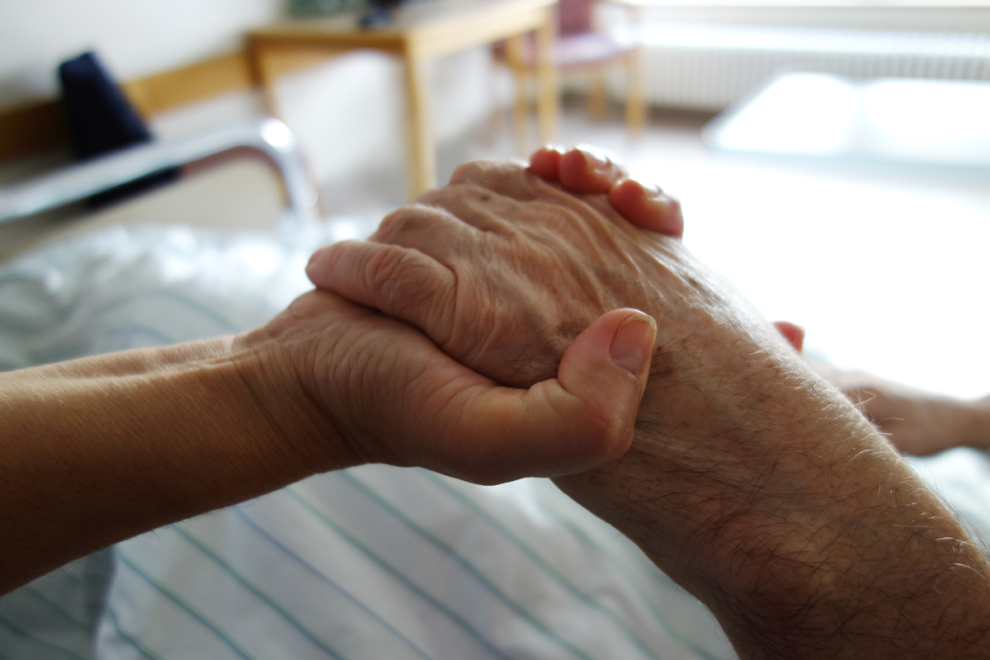THE WELSH PARLIAMENT voted against a motion supporting the introduction of assisted dying in Wales following an impassioned and often emotional debate.
The motion, a non-whipped conscience vote, took place on Wednesday, October 23. Julie Morgan (Lab), James Evans (Cons), and Adam Price (Plaid) presented the motion, which attracted cross-party support and encountered cross-party opposition.
Criminal law, which would need to be amended to legalise assisted dying, is not devolved to Wales. The motion before MSs was, therefore, limited to calling on the Welsh Government to support the principles of assisted dying and supporting the Westminster parliament’s introduction of a “compassionate assisted dying law in England and Wales”.
During the debate, many members recounted their personal experiences of family members and loved ones dying after long, painful illnesses and were visibly moved, occasionally to tears, as it unfolded.
A MORE HUMANE SYSTEM
Julie Morgan, who has campaigned in support of assisted dying as an MP and an MS, opened proceedings.
The Cardiff North MS acknowledged that the Welsh Parliament has no power to change the law on assisted dying. However, she reminded her colleagues that the Welsh Government, which is responsible for health and social care in Wales, would have to deliver any new law.
“So,” she reminded MSs, “we have a big stake in this debate here in this Chamber.”
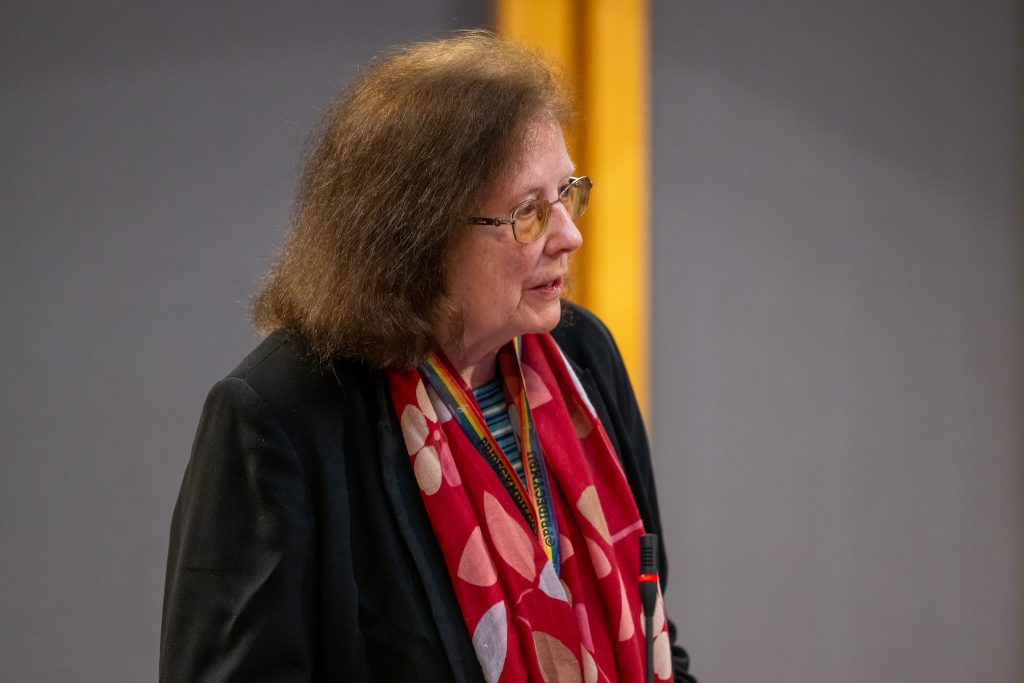
Julie Morgan continued: “At the moment, one person, every eight days, goes from the UK to Dignitas or somewhere similar in Switzerland. Under the present legislation, any relative or friend who assists them is liable for prosecution; they are criminalised. I listened to Sir Max Hill, former director of public prosecutions, who said it was very clear to him that the law is not working.”
She added: ” In every survey taken on legalising assisted dying in the UK, the majority of people are now supportive. There was a citizen jury that took place in England last year, and 26 out of 28 jurors voted in favour. There has been a move in public attitudes.
“The former Archbishop of Canterbury, Lord Carey, is in favour of assisted dying, saying that: ‘Doing whatever we can to relieve needless suffering and bring peace is a profoundly Christian act’.
“We should be able to reach a legislative result that will address all the concerns that many people feel but will enable us to provide a much more humane system.”
THE SLIPPERY SLOPE
Joel James spoke first against the motion. Referring to the ‘slippery slope’ argument against assisted dying, the Conservative MS said: “In terms of unintended consequences, one of the outcomes we cannot prevent is that once this door of assisted dying is open, there’s no stopping future generations of politicians from adversely reforming the legislation.
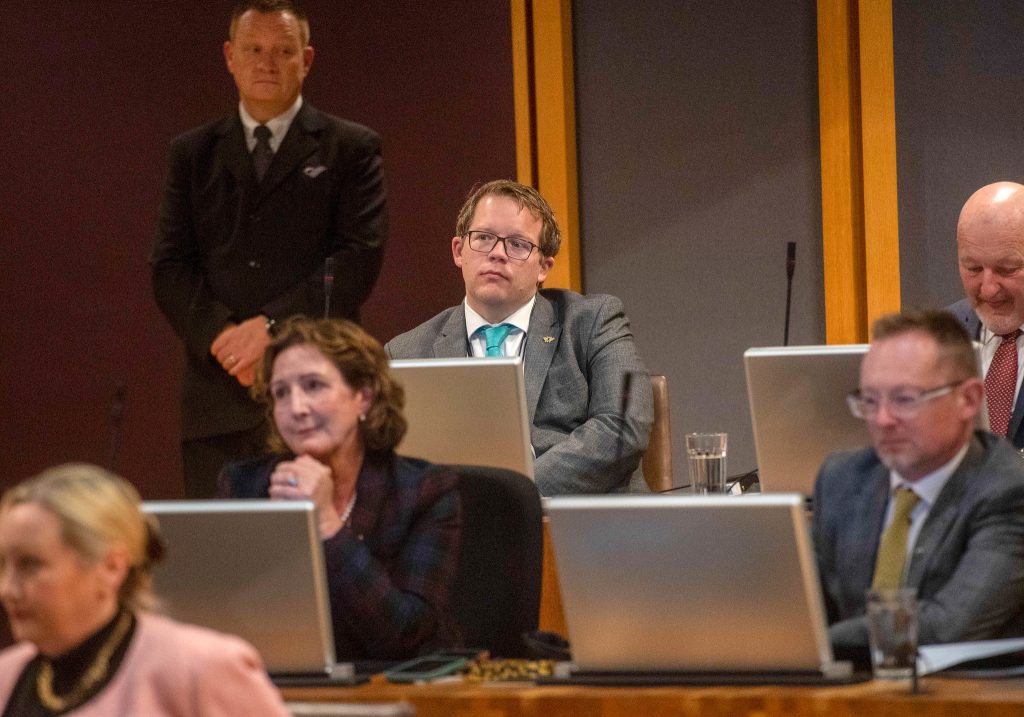
“Evidence has shown that in those countries that have introduced assisted dying, there is a trend to broaden the eligibility criteria. It has been expanded in the Netherlands and Belgium to include children, and, in Canada, from 2027, they will allow people suffering solely from mental health issues with no physical condition at all.”
The first two contributions drew the battle lines for the rest of the debate. On the one hand, supporters of assisted dying rejected the slippery slope argument, saying that adequate and strong safeguards would ensure that the UK would protect against abuse and misuse of any new law. On the other, opponents focused on the dangers inherent in passing legislation that risked future extension for non-physical diseases such as depression and anorexia.
FAITH AND CHOICE
Darren Millar stood apart from others opposing the motion. The Conservative MS said that his Christian faith led him to reject the idea of assisted dying.
He said: “I regard all life as sacred; I believe that all human beings are made in the image of God and that no matter what our age, circumstances or social status, every single life is precious; it has equal value and dignity and is worth living.
“But it’s not only my faith and it’s not only my conscience that draw me to the conclusion that assisted suicide is wrong. It’s also the fact that legalising assisted suicide is fraught with dangers that no change in the law will ever be able to mitigate.”
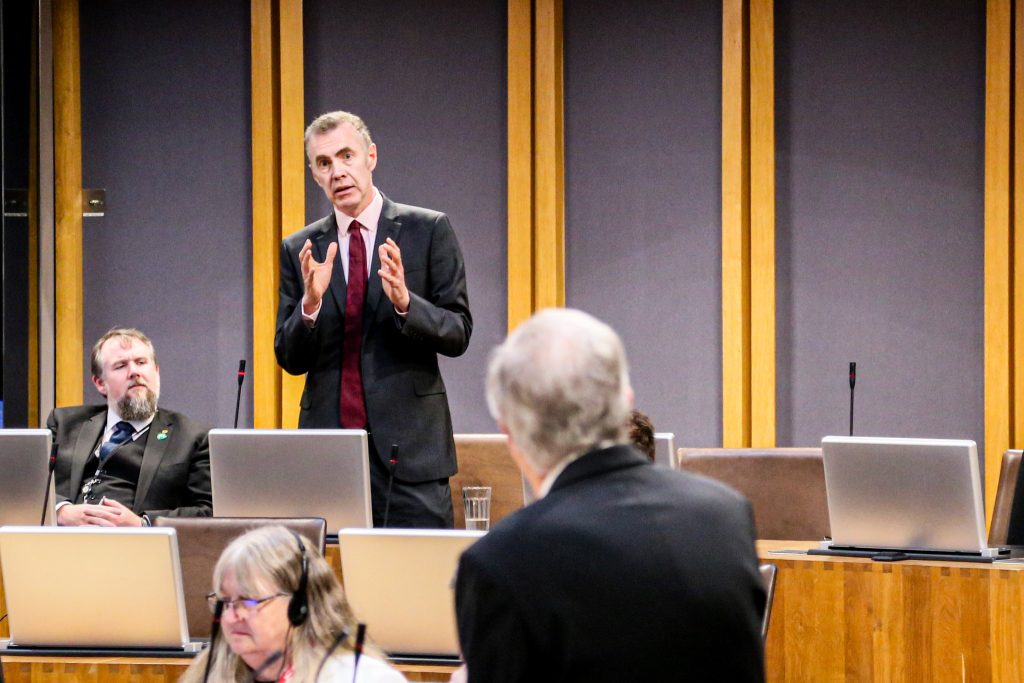
Supporting the motion, Adam Price said: “The first principle, for me, is the key one. It is autonomy and consent. Assisted dying must be based on the foundation of individual autonomy, the right of people to make decisions about their bodies, about their own lives and, yes, about their deaths.
“For those facing terminal illness and intolerable suffering—and let’s keep them where they should be, at the centre of our focus in this debate—the decision to end their life must be theirs and theirs alone.
“Consent [to assisted dying] must be confirmed at multiple stages. This should ensure that the decision is thoughtful and voluntary and made by somebody who fully understands the implications.
“A second major principle is the need to safeguard the vulnerable, as we’ve heard—the elderly, the disabled—who might feel pressured to choose assisted dying out of a sense of obligation or duty, as others have remarked. That’s a valid worry, but strong protections can address it.”
DIGNITY IN CHOOSING WHEN TO DIE
Heledd Fychan supported Adam Price’s observations and said: “People are already making this choice. They are leaving the country without the support of loved ones, or if their loved ones are with them, risking prosecution.
“People are making that choice by committing suicide. And we know that that happens. I’m sure I’m not the only person here today who has received correspondence from constituents where, perhaps, their parents or a loved one have committed suicide because assisted dying wasn’t an option.
“Let’s not pretend that this isn’t happening.”
Ms Fychan added that under the current law, those who committed suicide when suffering from a terminal illness had: “[N]o dignity in death, no farewell in that sense, as if you’d made the choice, an informed choice, with all the safeguards that Adam Price has outlined.”
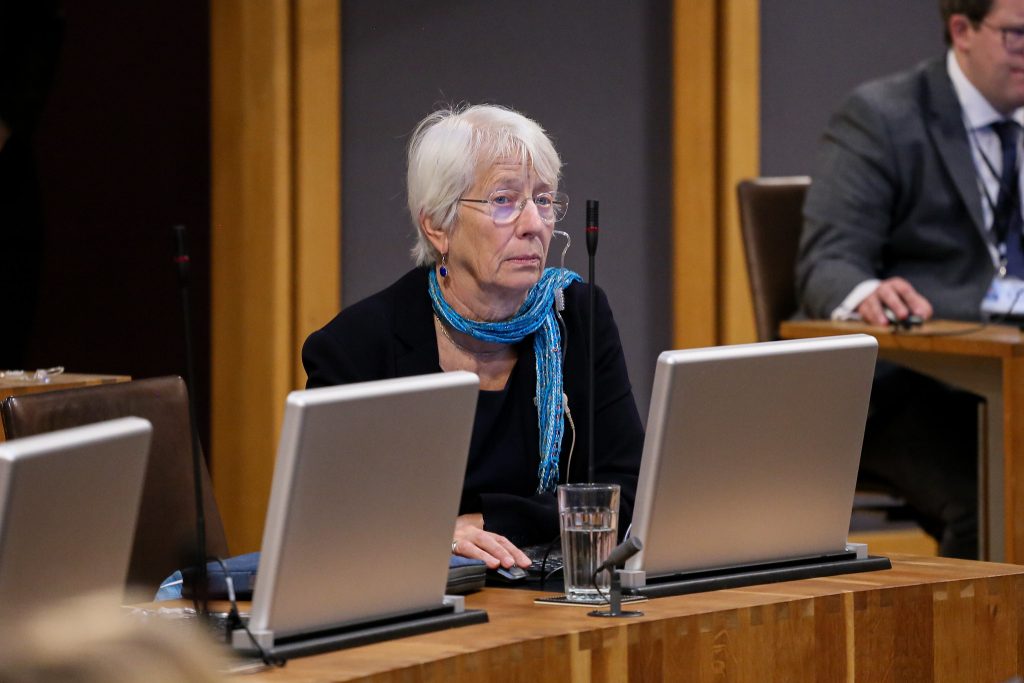
Jenny Rathbone said the stigma about death contaminated the debate: “There are far too many ways in which modern medicine keeps people alive long beyond their capacity to enjoy life, and this is a dilemma faced by the medical profession every single day of their working lives if they work in that emergency end of medicine.
“We absolutely need to have the safeguards in place, but, at the same time, why do we need to ensure that the state does not prohibit us from ending our lives when we think we’ve had enough?”
WELSH GOVERNMENT “NEUTRAL”
Responding to the debate, Health Minister Jeremy Miles said the Welsh Government was neutral on the motion before it.
Mr Miles added: “If an assisted dying Bill were to proceed, we would continue engagement with the UK Government to determine which aspects of the Bill were devolved. This decision would establish whether we would need to proceed with a legislative consent memorandum.
“Naturally, the area of health is largely devolved, and there would likely be devolution implications.
“If the law on assisted dying is to change, there will be long-reaching implications for the health service and end-of-life care services in Wales. Whatever the outcome of the assisted dying debate in the UK Parliament, we must continue our work in Wales to improve the quality of and access to palliative and end-of-life care.”
EVANS MAKES EMOTIONAL PLEA
James Evans wrapped up the debate: “We all enter politics for certain reasons. I got into politics because I gave my grandmother a promise that I would never let anybody go through what she went through at the end of her life—never. My grandmother had really bad dementia, and my grandmother and grandfather discussed her care. They decided between them that if anything bad happened, my grandfather would make the decision that my nan would not suffer.
“My nan had a really bad stroke. It left her incapacitated. She couldn’t talk, couldn’t open her eyes, but she was still alive. She had no life or quality of life. The doctors told my grandfather that they could keep my grandmother alive by introducing a feed PEG into her stomach.
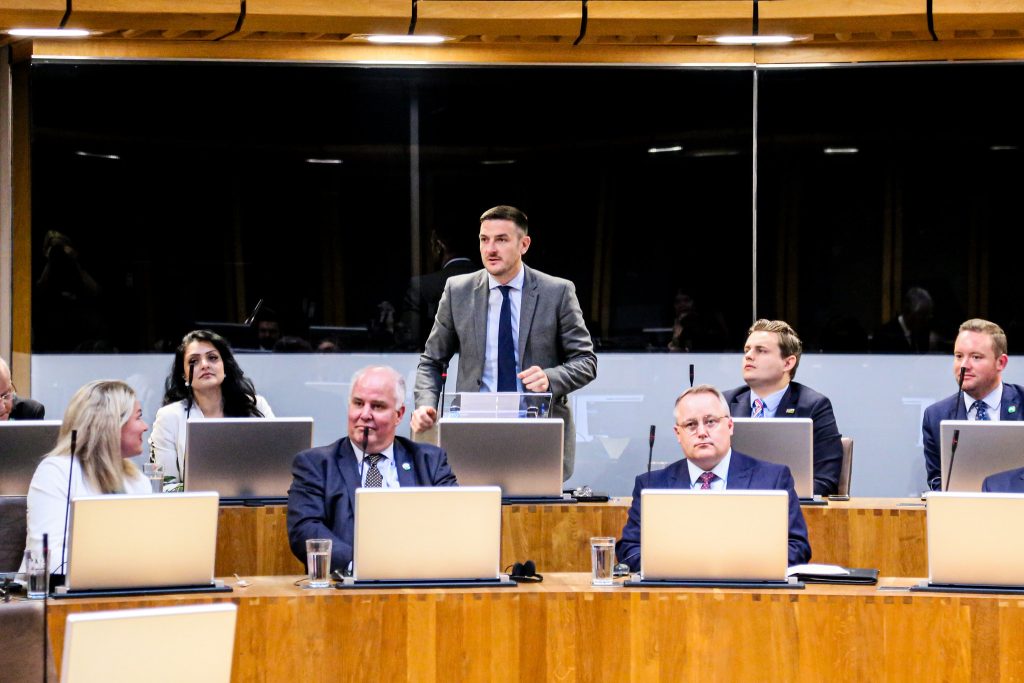
“My grandfather made the decision, based on the conversations he had with my grandmother, that he wouldn’t do that to her, and he decided that she should have the option to end her life naturally. The hospital came to my grandfather and said, ‘If you do this, we’re going to have you done for manslaughter.’ My grandfather regretted the decision that he had to make then to extend my nan’s life for the rest of his days.
“I made a promise to both of them that I would never let anybody suffer like that again, and that’s why I support this today.
“The problem we see is that the withdrawal of treatment is given when people have reached the end after they’ve gone through immeasurable suffering, and it should be that person’s right to choose.
“It’s not policy makers’ right to choose; we should enable people to make their own decisions. We do that on a daily basis, and we should be doing that more.”
The Welsh Parliament rejected the motion by 26 votes to 19.



